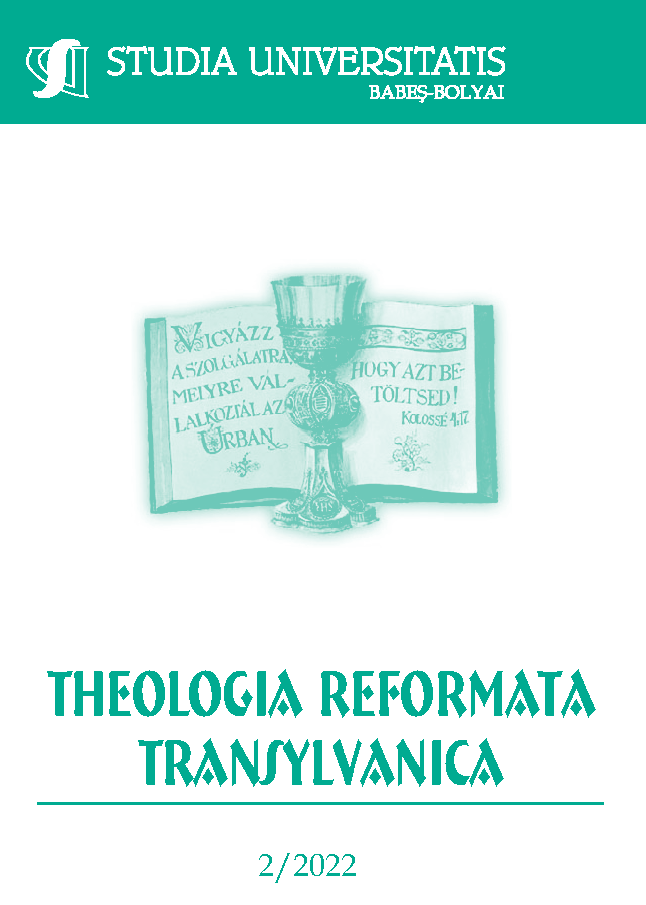Aspects of Linguistic Functionalism in Bible Translation. Some Trends in the Contemporary Canonical Hungarian Bible Translations
DOI:
https://doi.org/10.24193/subbtref.67.2.03Keywords:
Bible translation, functionalism, translation studies, Bible, language ideologiesAbstract
There are several Hungarian translations of the Bible serving at the same time: Translations are re-translations of the same text using revisions of ancient Bible texts. The language of the Bible should be “natural”, helping readers to comprehend it with the least effort. This effort is driven by direct and indirect translations showing more or less functional approaches to translation presenting texts by using methods of formal and functional equivalence. The paper provides a glimpse into contemporary canonical Hungarian translations, revealing the linguistic ideologies of the translator and the needs of the reader (in what manner linguistic ideologies have influence on the translation). Translation approaches are going to be “scaled” in the microstructure, showing possibilities of research to be done in the macrostructure of the translations. Examples are shown to reveal the intentions of the translator(s) helping readers to grasp the meaning of the source text.References
BOTTYÁN János (2009): A magyar Biblia évszázadai. Budapest, Kálvin Kiadó.
DAZDAREVIC, Samina – MILOVANOVIC, Ana Stisovic – FIJULJANIN, Fahreta (2013): Translating Sacred Words. 5th International Social Sciences Conference in Balkans, Sakarya University, Turkey, International University of Novi Pazar. [online] https://www.researchgate.net/publication/282186914_Translating_Sacred_Words.
DE JONG, Matthijs (2020): Translating the Bible in Plain Language. The Story of the Dutch Bijbel in Gewone Taal. Miami, UBS Monograph Series. 12. UBS
FABINY Tibor – PECSUK Ottó – ZSENGELLÉR József (2014): Felebarát vagy embertárs. Bibliafordítások és használatuk a mai Magyarországon. Budapest, Luther Kiadó – Kálvin Kiadó – Hermeneutikai Kutatóközpont.
HANULA Gergely (2016): Anyaszentnyelvünk. A „szent nyelvek” és a fordítás. Budapest, Argumentum Kiadó – ELTE BTK Vallástudományi Központ Liturgiatörténeti Kutatócsoport – Pápai Református Teológiai Akadémia.
HATIM, Basil (2009): Translating Text in Context. In: Munday, Jeremy (ed.): The Routledge Companion to Translation Studies. London, Routledge. 36–53.
KOLLER, Werner (1995): The Concept of Equivalence and the Object of Translation Studies. In: Target. 7, 2. 191–222. https://doi.org/10.1075/target.7.2.02kol.
LANSTYÁK István (2013): A Károli-biblia 20. és 21. századi revízióinak néhány kérdéséről. In: Fórum Társadalomtudományi Szemle. 15, 2. 3–34.
LANSTYÁK István – HELTAI Pál (2012): Universals in Language Contact and Translation. In: Across Languages and Cultures. 13, 1. 99–121.
M. PINTÉR Tibor – P. MÁRKUS Katalin [under publication]: The Role of Online Bible Readers in Biblical Concordance Making. In: Hungarian Studies Yearbook.
METZGER, Bruce (1993): Persistent Problems Confronting Bible Translators. In: Bibliotheca Sacra. 150, 3. 273–284.
NAUDÉ, Jacobus (2010): Religious translation. In: Gambier, Yves – van Doorslaer, Luc (eds.): Handbook of translation studies 1. Amsterdam, John Benjamins. 285–293.
(2021): Translation Studies and Bible Translation. Interview on BT List Live. Journal for Translation Studies in Africa. 2, 1. 1–27. https://doi.org/10.38140/jtsa.2.5141.
NEWMARK, Peter (1988): A Textbook of Translation. New York, Prentice Hall.
(1990): The Curse of Dogma in Translation Studies. In: Lebende Sprachen. 35, 3. 105–108. https://doi.org/10.1515/les.1991.36.3.105.
NORD, Christiane (1998): Hans J. Vermeer: Skopostheorie and Beyond. In: Nord, Christiane Translating as a Purposeful Activity. Functionalist Approaches Explained. London – New York, Routledge. 10–12.
(2016): Function + Loyalty: Theology Meets Skopos. In: Open Theology. 2, 1. 566–580. https://doi.org/10.1515/opth-2016-0045.
(2018): Translating as a Purposeful Activity Functionalist Approaches Explained. New York, Routledge.
PECSUK Ottó (2020): Szükséges és lehetséges-e az egyszerű nyelvű bibliafordítás? Egy holland példa nyomában. In: Fabiny, Tibor – M. Pintér, Tibor (eds.): πῶς ἀναγινώσκεις; Hogyan olvasod? Felekezeteket összekötő Egyesített Bibliaolvasó (EBO) felé. Budapest, Hermeneutikai Kutatóközpont. 90–115.
PYM, Anthony (1996): Material Text Transfer as a Key to the Purposes of Translation. In: Neubert, Albrecht – Shreve, Gregory – Gommlich, Klaus (eds.): Basic Issues in Translation Studies. Proceedings of the Fifth International Conference Kent Forum on Translation Studies II. Kent, OH, Institute of Applied Linguistics. 337–346.
REIß, Katharina – VERMEER, Hans J. (2013): Towards a General Theory of Translational Action. Skopos Theory Explained. London – New York, Routledge.
RYKEN, Leland (2004): Bible Translation Differences. Wheaton, Illinois, Crossway Books.
SCHÄFFNER, Christina (2010): Norms of Translation. In: Gambier, Yves – van Doorslaer, Luc (eds.): Handbook of Translation Studies 1. Amsterdam, John Benjamins. 235–244.
SNELL-HORNBY, Mary (2006): The Turns of Translation Studies. New Paradigms or Shifting Viewpoints? Amsterdam – Philadelphia, John Benjamins Publishing Company.
SZALAI András (2019): Bibliafordítás és a bibliafordítások (v.5. 2019.01.07.) http://www.apologia.hu/keresztenyseg/biblia-1/bibliaforditas-es-a-bibliaforditasok/.
TOURY, Gideon (1995): Descriptive Translation Studies and Beyond. Amsterdam – Philadelphia, John Benjamins Publishing Company.
VAN DER WATT, Jan G. – KRUGER, Yolande (2002): Some Considerations on Bible Translation as Complex Process. In: Acta Theologica, Supplementum. 2. 22, 1. 118–139.
Downloads
Published
How to Cite
Issue
Section
License
Copyright (c) 2022 Studia Universitatis Babeș-Bolyai Theologia Reformata Transylvanica

This work is licensed under a Creative Commons Attribution-NonCommercial-NoDerivatives 4.0 International License.






